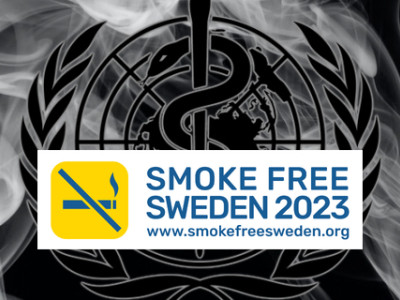When the World Health Organisation (WHO) launched its Framework Convention on Tobacco Control it stated: “Evidence reveals that tobacco companies have operated for many years with the deliberate purpose of subverting the efforts of WHO to control tobacco use. The attempted subversion has been elaborate, well financed, and usually invisible.”
It is this irrefutably vile business practice that fuelled the likes of Yach to embark on a campaign of direct action against tobacco companies. Yach cites Dr Neil Schluger, a lung specialist and professor of medicine at Columbia University, who said: “If there ever was an industry that does not deserve the benefit of the doubt when it comes to protecting or promoting the public’s health, it is the tobacco industry.”
Yach writes: “We’ve seen that snus is banned in most of Europe despite overwhelming evidence that it is harm-reducing. And now e-cigs and other innovative ways of delivering nicotine without the dangers created by burning tobacco face the same challenge.”
He argues against the introduction of taxation as a method of controlling electronic cigarette adoption. While agreeing that it worked in helping reduce smoking rates it is a misplaced approach when applied to a nicotine product that doesn’t carry the same risks. An old paradigm, Yach believes it could stifle the role ecigs still have to play in assisting current smokers to quit.
Yach explains that a “deep distrust of tobacco companies” lies behind the “unscientific approach of the US Centres for Disease Control and Prevention.” He pours scorn on their claim that many children are taking up vaping and then moving on to smoking. “They have yet to produce evidence that this is the case,” he continues. “This may well end up causing more public health harm than good.”
Siegel has been warning for some time now that “many anti-smoking and health groups, including the CDC and the California Department of Public Health, have been waging a war against e-cigarettes.” Due the misplaced loathing of all nicotine products highlighted by Derek Yach, Siegel says: “Many in the antismoking movement—in which I have been involved for decades—are conducting a misleading campaign against these products. And this campaign may be doing harm to public health.”
“When electronic cigarettes came to the U.S. about 2007, I was sceptical. My assumption was they were a ploy by the tobacco industry to hook more people into smoking under the guise of being a safer product—the notorious low-tar cigarette scam all over again. But as I talked to many e-cigarette users, known as “vapers,” conducted research (Journal of Public Health Policy, 2011) and reviewed a growing body of scientific evidence, I became convinced that e-cigarettes have dramatic potential for reducing disease and death caused by smoking.”
It’s a clear message to legislators that policy ought to be evidence-based and not rooted in feelings about a cigarette industry that still lies on the periphery of vaping.
Dave Cross
Journalist at POTVDave is a freelance writer; with articles on music, motorbikes, football, pop-science, vaping and tobacco harm reduction in Sounds, Melody Maker, UBG, AWoL, Bike, When Saturday Comes, Vape News Magazine, and syndicated across the Johnston Press group. He was published in an anthology of “Greatest Football Writing”, but still believes this was a mistake. Dave contributes sketches to comedy shows and used to co-host a radio sketch show. He’s worked with numerous vape companies to develop content for their websites.
Join the discussion
Harm Reduction For The Rich
The United Kingdom risks becoming a harm reduction country only for the wealthy, according to Michael Landl of the World Vapers’ Alliance
CAPHRA Highlights Tobacco Control Flaws
The Coalition of Asia Pacific Tobacco Harm Reduction Advocates highlights the flaws in tobacco control which has led to the rise of black market in Australia
A Missed Opportunity at COP10
The Smoke Free Sweden movement says that COP10 was a missed opportunity to save millions of lives
COP10: Promote Tobacco Harm Reduction
Experts with Smoke Free Sweden are emphasising the urgent need for a Tobacco Harm Reduction approach at COP10












